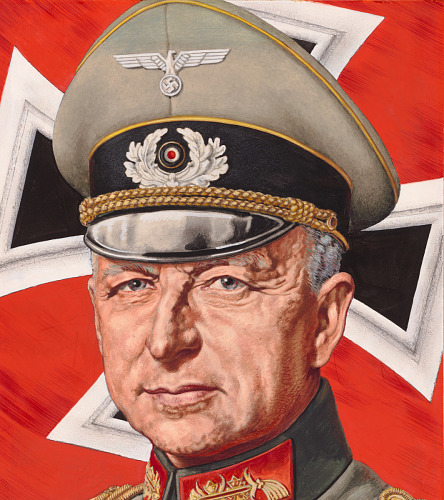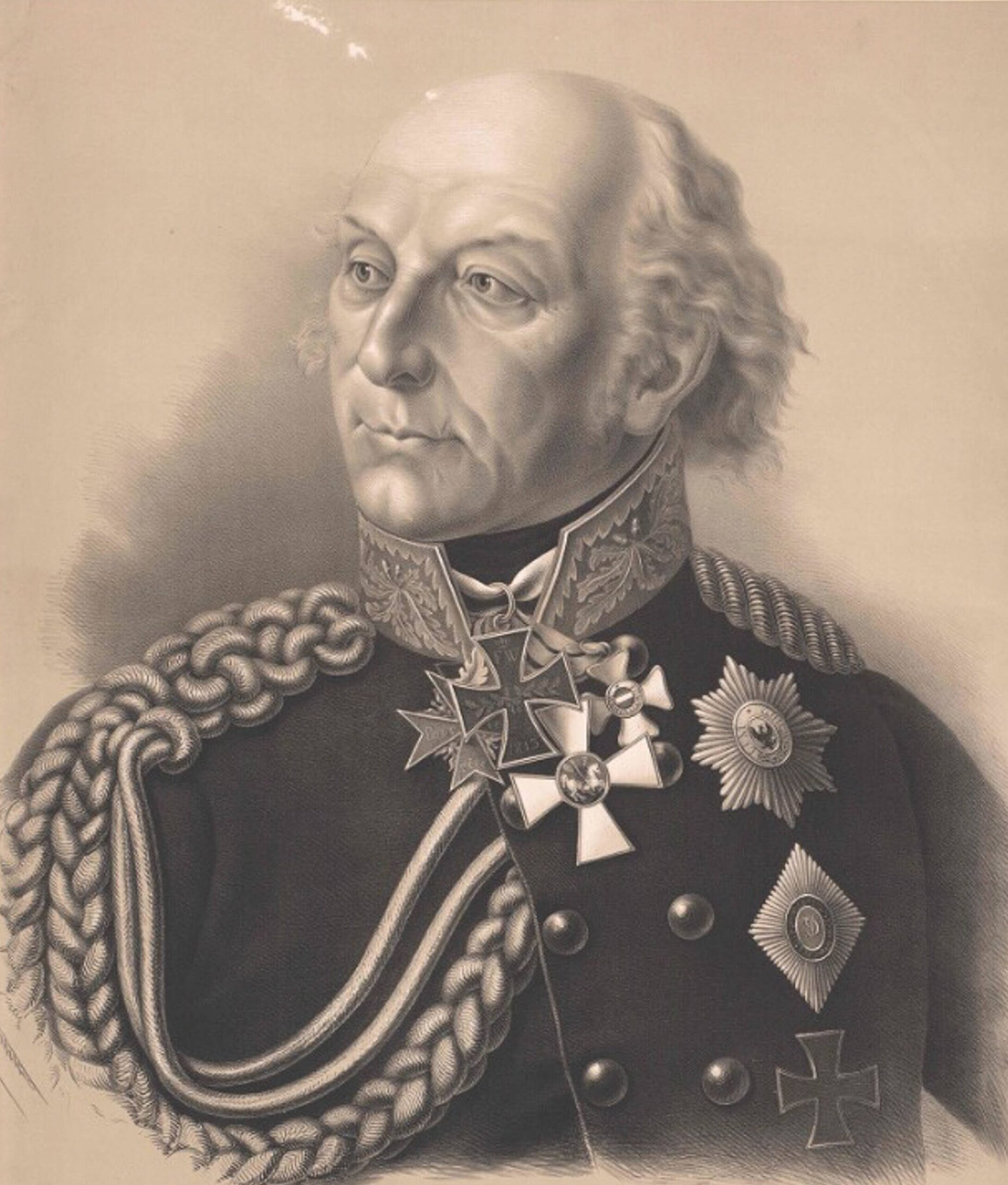DEFEAT CAPITALISM AND ITS DEADLY SPAWN, IMPERIALISM
ecological murder • endless wars • ingrained racism & social injustice • worker exploitation • incurable via reforms
Michael Buergermeister
Letters from Vienna
Letters from Vienna #112
Erich von Manstein and Genocide

Erich von Manstein: “the Jewish-Bolshevist system must be exterminated." As a lifetime Nazi, he escaped true punishment, became a darling of the CIA, and in the postwar got a job with Germany's new army and NATO itself.
“The slaughter that followed the German attack on the Soviet Union in June 1941,” wrote Christopher Simpson, “is without equal in world history. Next to the Nazis’ operation of the anti-Jewish extermination centers at Treblinka, Sobibor, Birkenau, and elsewhere, the most terrible crimes of the entire war took place in name of anti-communism in the German-occupied territories on the eastern front. Civilian casualties in these areas were so enormous, so continuous, and so extreme that even counting the dead has proved impossible. Scholars have attempted to deduce the numbers of fatalities from captured German records, reports of Einsatzgruppen (mobile execution squads). The evidence indicates that between 3 and 4 million captured Soviet soldiers were intentionally starved to death in German POW camps between 1941 and 1944. At least a million and a half Jews were exterminated inside Nazi-occupied Soviet territory, mainly through mass shootings but also through gassing, deportation to extermination camps, looting and destruction of villages, hangings, and torture. The generally accepted figure for all Soviet war dead is 20 million human beings—about 15 percent of the population of the country at the time—but the destruction was so vast that even this number can be only an educated guess.” [Recent figures put the total to 27 million and possibly higher.—Ed]
“The Nazis deliberately used famine as a political weapon in the East, and it soon became the largest single killer. As the German invasion of the USSR began, General (later Field Marshal) Erich von Manstein ordered that “the Jewish-Bolshevist system must be exterminated. ... In hostile cities, a large part of the population will have to starve.” Nothing, Manstein continued, “may, out of a sense of mistaken humaneness, be distributed to prisoners or to the population—unless they are in the service of the German Wehrmacht.””
“This was a war not only of conquest but of extermination. Entire regions of the USSR were to be cleared of the existing Communist apparatus and of Slavic “subhumans” to make way for settlement by “Aryan pioneers.” Above all, it was believed necessary to conduct an ideological war to wipe out the “Jewish-Bolshevist plague” and those who were its “carriers.””
“The Nazis’ mass killings at Lidice, Czechoslovakia, and Oradour, France — where the Germans rounded up the town’s population in retaliation for the assassination of a German official, murdered the captives, and shipped any survivors to concentration camps, then burned the place to the ground–are well remembered in the West today.”
“But inside the Nazi-occupied USSR there were not just one or two Lidices. There were hundreds. Mass killings of the Lidice type took place at Rasseta (372 dead), Vesniny (about 200 dead, mainly women and children), and Dolina (469 dead, again mainly women and children), to name only three.””[1]
Disgust, anger, and outrage at these cold, brutal and genocidal policies played a decisive role in why many Germans, such as Stauffenberg, Treskow and Olbricht, rebelled against Hitler and the Nazis. Another, perhaps even more important consideration, was the fact that the “Führer” and his “Partei” were willing to sacrifice Germany and German lives for what was already clearly, in 1943, a lost cause. Any sane leader or one who had at least a mild interest in the well-being of Germany and the Germans would have sought peace. Yet this was precisely what Hitler didn’t do. Was he mad, bad, or simply dangerous to know?
Some, such as Greg Hallett (who wrote the book: “Hitler was a British Agent”), argue that Hitler worked for the British all along and that his ultimate aim was the destruction of Germany and its people. Given the wealth of evidence that has now accumulated and the extremely important works of scholarship that have been penned, such as “Krämer des Krieges: Die 5. Kolonne d. Monopole” by Kai Moltke, “Wall Street and the Rise of Hitler” by Antony C. Sutton or “Conjuring Hitler: how Britain and America made the Third Reich” by Guido Giacomo Preparata, it’s very hard to doubt Hallett’s theory. Even if Hitler hadn’t been working for the British he might as well have been doing so; the effect of his policies had much the same outcome.
When confronted with his moral responsibility toward Germany in 1943, the year in which defeat became self-evident, Field Marshal von Manstein replied: “Prussian generals don’t mutiny.” To this nonsense, Stauffenberg countered with one word: “Tauroggen”.
“On December 30 1812,” Dr. Daniel Niemetz informs us, “the commander of the Prussian auxiliary corps of the Grande Armée, Ludwig von Yorck, signed a truce with the Russian troops. The Tauroggen Convention was the start of the wars of liberation against Napoleon’s dominance over Germany and Europe.”
“Yorck undertook to leave his association in the north of East Prussia between the towns of Tilsit and Memel. His 15,000 Prussians were thus withdrawn from Marshal Jacques MacDonald’s X Corps, which from then on no longer had sufficient forces to cover the French northern flank. This opened the way to East Prussia for the Russians.”
“Yorck’s action was a clear act of disobeying his king, who ordered him to cooperate with the French. The general risked being charged with treason and ending up in front of a firing squad. To Friedrich Wilhelm III he, therefore, wrote: “Now or never is the moment to regain [Prussia’s] freedom, independence and greatness. I swear to [Your] Royal Majesty that I will be as calm on the heap of sand [of the execution site] as on the battlefield on which I am grey have become, will await the bullet.”[2]
Feelings of Duty and Honour

Carl von Clausewitz: He knew when to change course. (Photo by ullstein bild/ullstein bild via Getty Images)
One of those who played a key role in the coming about of the Tauroggen Convention was Carl Philipp Gottfried (or Gottlieb) von Clausewitz, who’d switched to the Russian side in March 1812. The Convention meant that he could avoid facing his brothers in battle and joyfully reunite with them instead.
In 1812 he wrote: “Perhaps these lines may stimulate a feeling of duty and honour in many a breast, perhaps they may send a ray into many a head and scare away the ghostly monster of fear, clearly showing the danger, which really exists and separating it from the one that doesn’t.”
“Prussia has endured a struggle since 1794, which hasn’t lasted nearly long enough, has been fought with far too little effort or strength of will, to justify complete despair. On the contrary, the whole of Europe must expect the states to rise up again against complete annihilation and show themselves worthy of Frederick’s name through a life-and-death struggle.”
“This name of Frederick II, which is on the lips of all Prussians, gives foreigners the right to expect that there is still a respectable attitude to be found among us; a sense of duty, virtue, and honour, which, far from being dulled by the pressures of time, have rather gained a stronger resilience and force, and fill us with noble indignation. In fact, to speak much of honour and fame, when both have long been won and not endangered, is mere vanity; and we could have spared foreigners many phrases with which we have so often become a nuisance. How contemptible and undignified this phraseology will seem, when it is now seen that we slink away from danger, unconcerned about honour or shame!”
“It seems incredible that those who were witnesses to Frederick’s deeds, and others who constantly mention his name, only approve of what he did, and scornfully ridicule everything that is not in his manner; that these do nothing for the regent’s house, nothing for the honour of the state, but want to abandon themselves to contempt, unworthy descendants of that heroic family which, under Frederick, earned the respect and sympathy of the Prussian name in the world.”[3]
Given the acts of war, such as the destruction of the Nord Stream pipeline (see Letter #93), and the fact that NATO is the heir of the Waffen-SS and the EU the heir of the Third Reich (see “The Shocking History of the EU” by Dr. Vernon Coleman) it is high time for Germans to come to their senses, shake off the chains of Globalist slavery and to become free once more.
[1] pp.13-15 Blowback, Christopher Simpson
[2] https://www.mdr.de/geschichte/weitere-epochen/voelkerschlacht/
tauroggen-konvention-yorck-russland-preussen-napoleon-100.html
[3] p. 82 Politische Schriften und Briefe, Carl von Clausewitz
Print this article
Unfortunately, most people take this site for granted.
DONATIONS HAVE ALMOST DRIED UP…
PLEASE send what you can today!
JUST USE THE BUTTON BELOW
[/su_spoiler]
![]() Don’t forget to sign up for our FREE bulletin. Get The Greanville Post in your mailbox every few days.
Don’t forget to sign up for our FREE bulletin. Get The Greanville Post in your mailbox every few days.
[premium_newsticker id=”211406″]

This work is licensed under a Creative Commons Attribution-NonCommercial 4.0 International License




